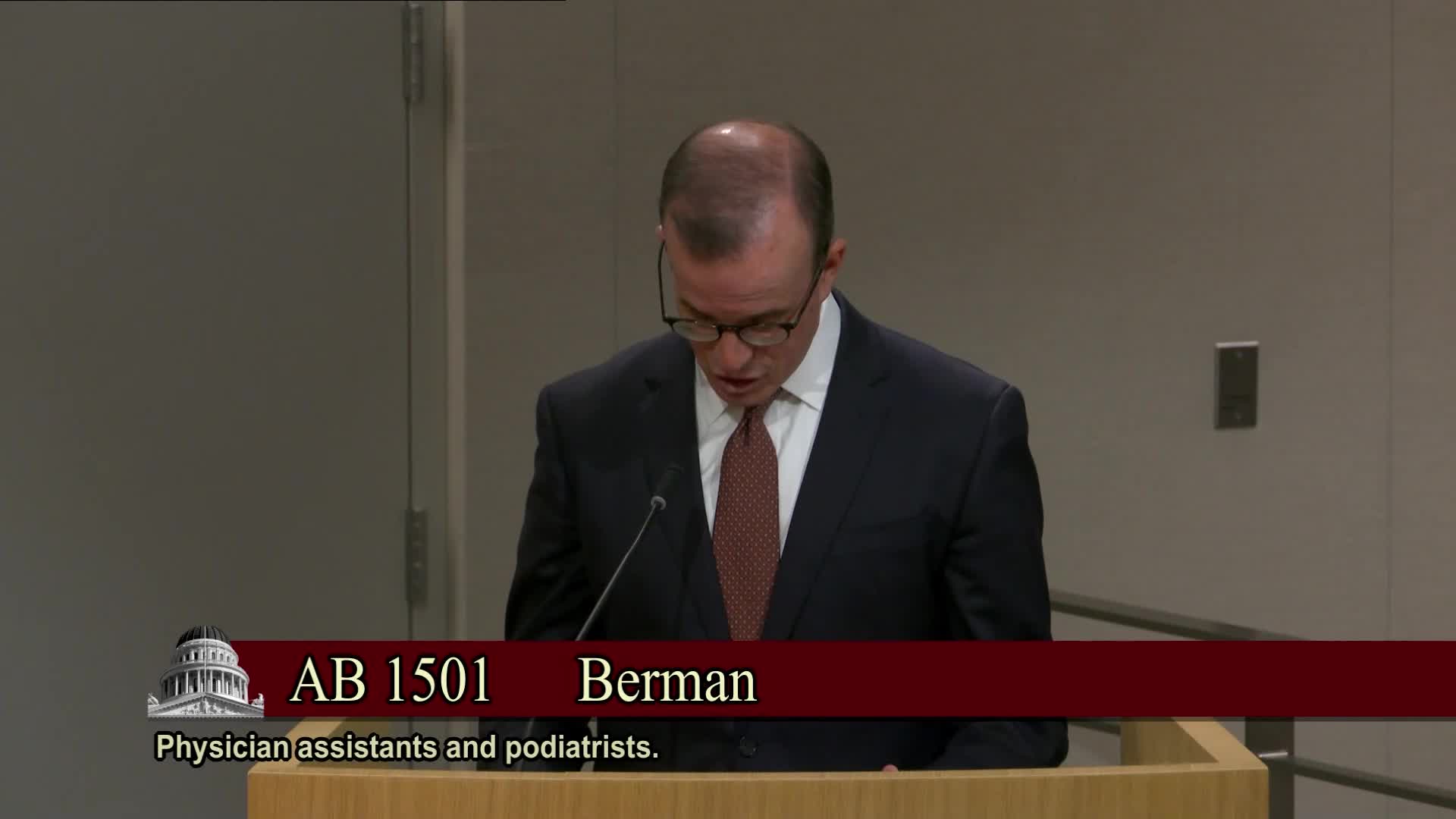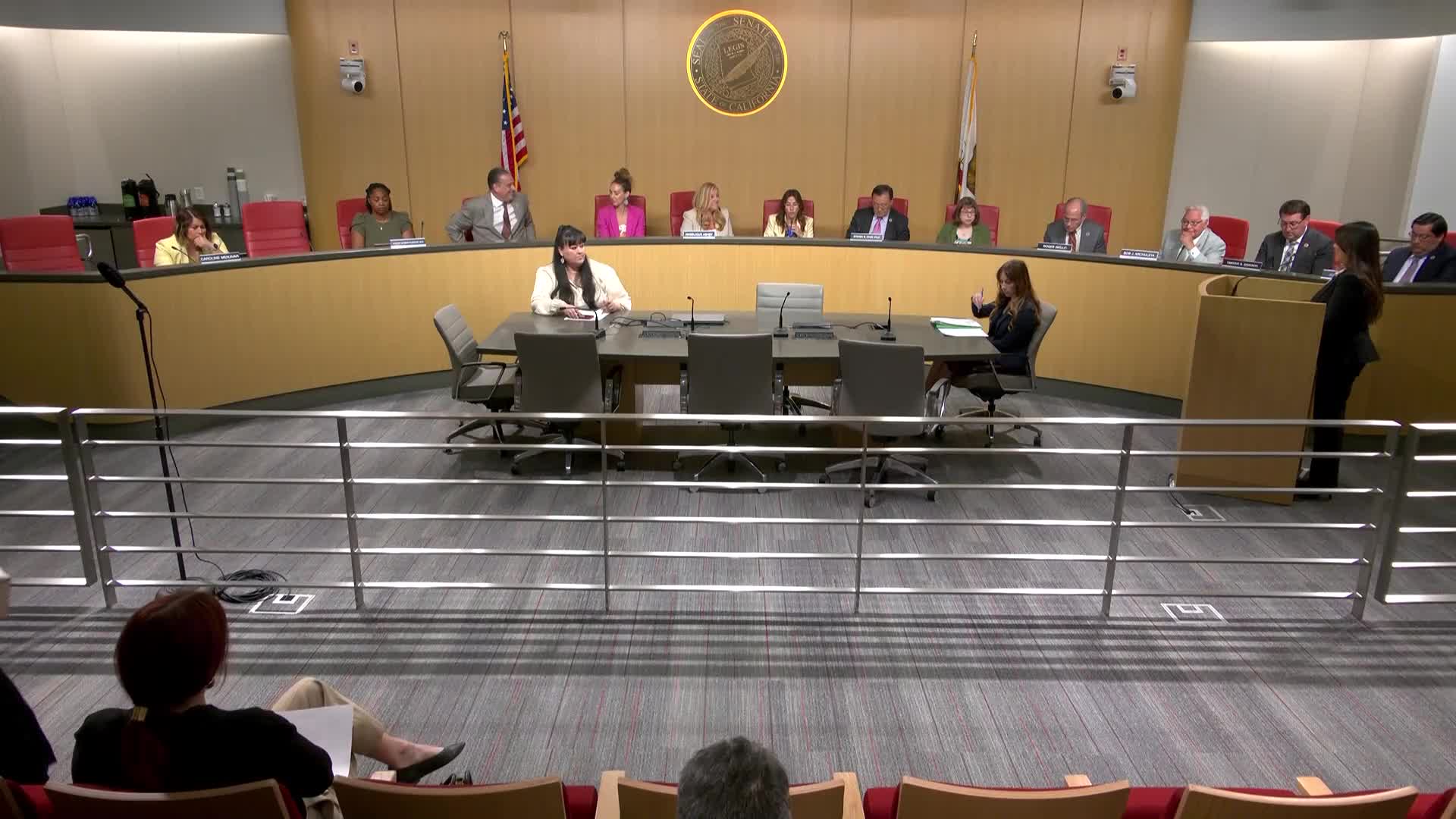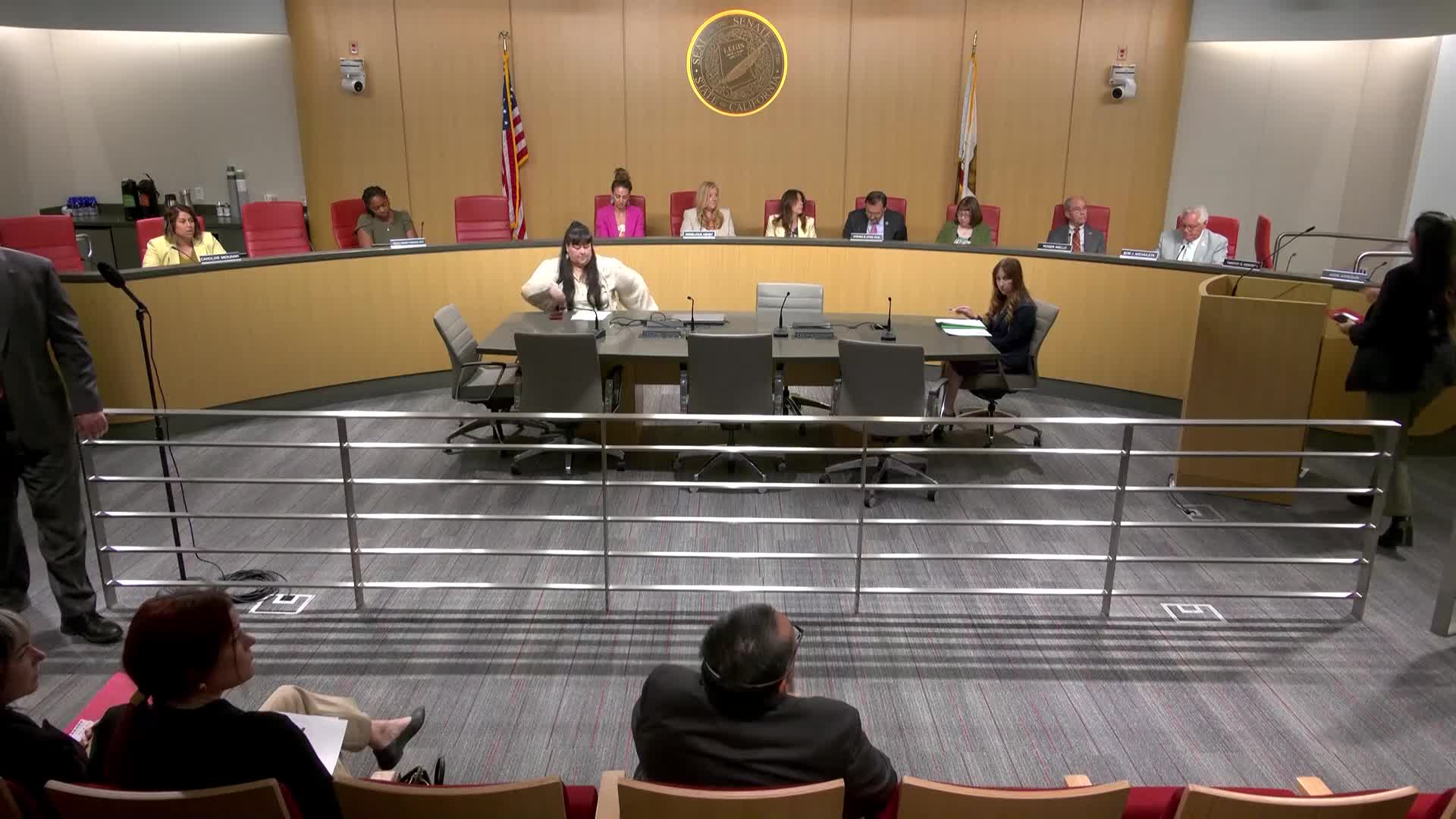Article not found
This article is no longer available. But don't worry—we've gathered other articles that discuss the same topic.

Bill would let nonprofits buy wildfire‑damaged homes using CRA funds to preserve local ownership

Committee advances AB 1504 to extend California Massage Therapy Council amid debate over transparency and enforcement

AB 519 would target third‑party pet brokers to curb puppy‑mill imports; committee advances bill amid industry pushback

Bill would bar tobacco sales in stores with pharmacies; committee advances AB 957 after debate

